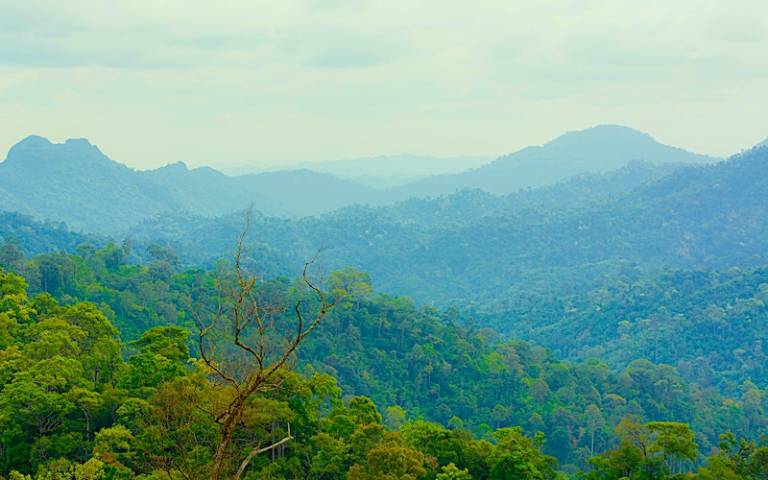Blog: ISR in conversation with…Emily Cox on public perceptions of carbon removal
26 April 2023
“Participation is not a silver bullet, but it’s a start…” - read Julia Tomei's reflections on our recent 'ISR In Conversation..." event with Emily Cox.

On 19th April 2023, Emily Cox (Research Associate at the University of Oxford) joined the UCL Institute for Sustainable Resources for a discussion of carbon dioxide removal methods, and how a failure to engage with the public may cause future challenges. Julia Tomei from the UCL Institute for Sustainable Resources has written a blog about the event.
Emily began with an introduction to what carbon dioxide removal (CDR) is and why it matters – namely that analysis by the International Panel on Climate Change has shown that it will not be possible to achieve net zero without some removal of previously emitted carbon dioxide. This is particularly true for hard to decarbonise sectors, such as aviation and shipping. However, what form that CDR takes is still very much up for debate and therefore how we plan to implement it matters greatly.
There are several ways in which we can remove carbon from the atmosphere, such as by storing carbon in biological matter (i.e. trees and soils) or in geological reservoirs (e.g. carbon capture and storage). Currently, most CDR comes from land – mainly forest – but globally the amount of land is limited and there are already multiple competing uses of that land. Emily highlighted that forests are also a ‘risky’ way of storing carbon as forests can be chopped down or subject to fires.
However, most people are unaware of the need to capture and store carbon and Emily argued that this is a conversation that we need to be having now. This is not only because things can go horribly wrong when scientists and policymakers don’t engage with the general public (think of fracking or debates around genetically modified organisms, for example), but also because including a diversity of voices can help us to make better decisions. Having these conversations means we will need to confront issues such as, who is CDR for? Who stands to benefit and who to lose? How are these technologies going to be rolled out? Where will they be located? Fundamentally, these are issues of justice. Emily concluded with a call for a more systematic and meaningful approach to participation in CDR.
This was followed by a response from Dr Isabela Butnar, Principal Research Fellow at the ISR, who posed three key questions for CDR. First, Isabela asked whether CDR methods are able to deliver removal? She highlighted ongoing work at the ISR which applies systems thinking to help us answer this question, arguing that no matter the answer we will need both mitigation and removal. Second, Isabela argued that CDR is not just about carbon. We need to also be about biodiversity, land use, energy and food security, and global development. Isabela and Emily’s work on the CO2RE Greenhouse Gas Removal Hub consortium is deriving principles that will help to identify opportunities and trade-offs between these different needs. And finally, Isabela questioned whether CDR needs to be large-scale. Here, she highlighted the opportunities for community scale methods that would also provide benefits for local communities, but which face legal and financial hurdles.
These presentations were followed by a lively Q&A with the audience. Questions ranged from how to better communicate CDR to different groups, the importance of political framings, and more technical issues such as the cost of scaling up removals. We look forward to the next session!
Join us for our next conversation with Arjan Geveke on the future of energy intensive industries on Wednesday 17th May at 5.30pm.
Links
- To learn more about Emily Cox's work, go here.
- To learn more about the CO2RE Greenhouse Gas Removal Hub, go here.
- To book your place at the next event, go here.
- To learn more about Isabela Butnar's work, go here.
Image credit: Tweesak C / pexels.com
 Close
Close

